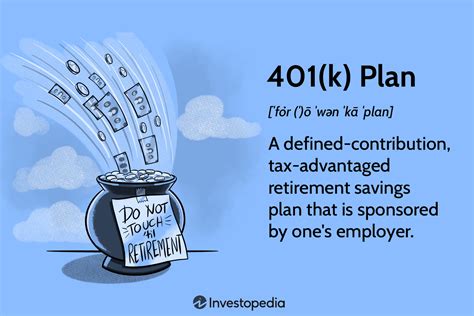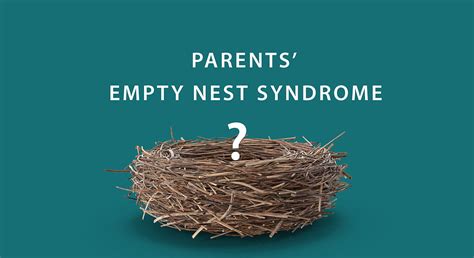
A woman is reportedly covering her mother’s rent after her millionaire sister allegedly refused to help, despite their mother’s financial struggles. The situation, detailed in an anonymous online post, has sparked a widespread debate about familial financial obligations and the responsibilities of wealthy individuals towards their relatives.
An individual, using the online handle “ParticularTax7541,” shared a story on the subreddit r/AmItheA**hole, detailing a complex family dynamic involving their mother and their sister, a millionaire. According to the post, their mother faces financial challenges and needs assistance with rent. The poster claims their sister, despite her substantial wealth, declined to contribute to their mother’s housing costs, leading the poster to step in and pre-pay the rent. The post has ignited a discussion about moral obligations, wealth distribution within families, and the complexities of interpersonal relationships when significant financial disparities exist.
The original poster (OP) detailed the scenario, explaining that their sister’s refusal to help their mother created a difficult situation. “My sister is a millionaire. My mom is not,” the OP wrote. “Mom has been having trouble making rent lately, so I pre-paid several months to give her some breathing room.” The crux of the issue lies in the sister’s alleged lack of support, given her financial capacity to assist. This decision prompted the OP to take financial responsibility, raising questions about fairness and familial duty. The post quickly garnered significant attention, with users offering a variety of perspectives on the ethical dimensions of the situation.
The Reddit post provided further background, explaining that the sister’s wealth was self-made. The poster clarified that they were not looking for validation but rather seeking opinions on the overall situation and the potential impact on family dynamics. The OP also stated that while they could afford to help their mother, the financial burden was not insignificant, and the sister’s refusal to contribute felt unfair. “I can afford it, but it still stings a bit that she won’t help at all,” the poster admitted. The post highlighted the emotional toll and the perceived injustice of the situation, adding layers of complexity to the discussion.
The online debate surrounding the situation quickly escalated, with users expressing strong opinions on both sides of the argument. Many commentators criticized the millionaire sister, arguing that she had a moral obligation to support her mother, especially given her substantial wealth. These users suggested that familial bonds should supersede financial considerations, and that those with the means to help should do so without hesitation. They emphasized the importance of gratitude and reciprocity, arguing that the sister’s success might have been, in some way, facilitated by her mother’s support in the past.
Conversely, some users defended the sister’s decision, asserting that she had no inherent obligation to financially support her mother, particularly if she had earned her wealth independently. These commentators emphasized individual autonomy and the right to dispose of one’s wealth as one sees fit. They also raised concerns about potential entitlement and the possibility that providing financial assistance could create dependency or resentment. Some argued that the mother should have planned more effectively for her retirement or sought assistance from other sources before relying on her daughter’s wealth.
The nuances of the situation were further explored in the comments section. Several users pointed out that the details provided were limited and that there could be underlying reasons for the sister’s reluctance to help. For example, there might be a history of strained relationships, financial mismanagement by the mother, or previous instances where financial assistance was not appreciated or properly utilized. Without a complete understanding of the family dynamics, it was difficult to make a definitive judgment about the sister’s actions.
Moreover, the discussion touched on broader societal issues related to wealth inequality and the growing gap between the rich and the poor. Some commentators argued that the situation highlighted the need for systemic changes to address economic disparities and ensure that everyone has access to basic necessities like housing and healthcare. They suggested that relying on individual acts of charity was not a sustainable solution and that governments and institutions should play a more significant role in providing social safety nets.
The anonymity of the Reddit post allowed for open and honest discussion, but it also presented challenges in verifying the accuracy of the information. While many users offered genuine advice and support, others expressed skepticism about the authenticity of the story. Some suggested that the post might be fabricated or exaggerated for attention or entertainment. Without independent verification, it was impossible to confirm the details of the situation, but the discussion it generated was nonetheless valuable in exploring complex ethical dilemmas.
The conversation also addressed the potential impact of the situation on the relationship between the two sisters. Many users cautioned the OP about the potential for resentment and conflict if the issue was not addressed openly and honestly. They suggested that the sisters should have a direct conversation about their respective financial situations and expectations. Some even recommended involving a neutral third party, such as a family therapist or mediator, to facilitate a constructive dialogue.
The debate also extended to the role of other family members and their potential responsibility to support the mother. Some users suggested that other siblings, relatives, or even close friends should consider contributing to the mother’s financial well-being. They argued that collective responsibility could alleviate the burden on any single individual and foster a sense of community support. However, others cautioned against imposing financial obligations on individuals who may not be in a position to help or who may have their own financial challenges.
The Reddit post and the subsequent discussion highlighted the complex interplay of financial resources, familial obligations, and personal values. There is no easy answer to the question of whether the millionaire sister has a moral obligation to support her mother. The answer likely depends on a variety of factors, including the specific circumstances of the family, the nature of their relationships, and their individual beliefs about wealth and responsibility.
The story underscores the importance of open communication and financial transparency within families. When significant financial disparities exist, it is crucial to have honest conversations about expectations, needs, and capabilities. These conversations can help to prevent misunderstandings, resentment, and conflict. They can also facilitate the development of creative solutions that address the financial challenges faced by family members in need.
Ultimately, the Reddit post served as a catalyst for a broader discussion about the ethical responsibilities of wealthy individuals and the importance of familial support. While the specific details of the story may be unique, the underlying themes of wealth, obligation, and family resonate with many people. The discussion provides valuable insights into the complexities of these issues and encourages readers to reflect on their own values and responsibilities.
The situation detailed in the Reddit post, while centered on one family’s predicament, echoes wider societal anxieties about wealth inequality and the erosion of traditional family support structures. As the gap between the rich and poor continues to widen, more families are likely to face similar challenges. This highlights the need for both individual responsibility and systemic solutions to address the growing economic disparities and ensure that vulnerable individuals receive the support they need.
This story is not unique; many families grapple with similar situations where one sibling has significantly more financial resources than others. It raises fundamental questions about fairness, responsibility, and the role of money in family relationships. The lack of a clear-cut answer underscores the need for empathy, understanding, and open communication within families navigating these complex issues. The long-term effects of such financial imbalances can strain relationships, creating rifts that are difficult to mend. Therefore, proactive and thoughtful discussions are essential to mitigating potential conflicts and fostering a sense of unity and support.
Moreover, the discussion brought up a very valid point that familial relationships are not transactional and are built on love, care, and mutual respect. Therefore, a situation like this highlights the importance of understanding the difference between enablement and support. Providing financial assistance should not come at the cost of enabling unhealthy behaviors or creating dependency. It requires a delicate balance of offering help while also encouraging independence and self-sufficiency.
The debate surrounding this story also underscores the diverse perspectives on the role of wealth in society. Some believe that wealth should be used to alleviate suffering and support those in need, while others believe that individuals have the right to use their wealth as they see fit. These differing viewpoints reflect fundamental differences in values and beliefs about the nature of capitalism and the distribution of resources. Understanding these different perspectives is crucial for fostering constructive dialogue and finding common ground.
The online discussion further illuminated the importance of setting clear boundaries and expectations when it comes to financial assistance within families. Without clear communication, misunderstandings and resentment can easily arise. It’s important to have open and honest conversations about the extent of assistance that can be provided, the conditions under which it will be provided, and the expectations for repayment or reciprocation. This can help to prevent conflicts and ensure that financial assistance is provided in a way that is both helpful and sustainable.
The anonymity of the Reddit post also raises questions about the ethics of sharing personal family matters online. While the poster may have intended to seek advice and support, they also exposed their family members to public scrutiny and judgment. This highlights the need for caution and discretion when sharing sensitive information online, especially when it involves the privacy and reputations of others. It’s important to consider the potential consequences of one’s online actions and to respect the privacy of others, even when seeking help or advice.
The story serves as a reminder that financial wealth does not necessarily equate to happiness or fulfillment. While the millionaire sister may have achieved financial success, her strained relationship with her mother and sister suggests that she may be lacking in other areas of her life. This underscores the importance of prioritizing relationships, values, and personal well-being over material possessions. True wealth encompasses more than just financial assets; it also includes strong relationships, a sense of purpose, and a commitment to making a positive impact on the world.
The financial decisions made by individuals within families can have far-reaching consequences, impacting not only their own lives but also the lives of their loved ones. The situation highlights the interconnectedness of family members and the importance of making responsible and ethical financial choices. It encourages individuals to consider the impact of their decisions on others and to act in a way that promotes the well-being of the entire family.
The story prompts a deeper reflection on the nature of generosity and the motivations behind charitable giving. Is generosity driven by genuine compassion and a desire to help others, or is it motivated by a desire for recognition or validation? The answer likely varies from person to person, but the story encourages individuals to examine their own motivations and to strive for genuine altruism. True generosity is not about seeking praise or recognition; it’s about giving without expecting anything in return.
Finally, the story underscores the importance of financial literacy and planning. Many of the financial challenges faced by families could be avoided with proper planning and education. It’s crucial for individuals to develop sound financial habits, such as budgeting, saving, and investing, to ensure that they are prepared for unexpected expenses and can achieve their long-term financial goals. Financial literacy is not just about accumulating wealth; it’s about making informed decisions that promote financial security and well-being.
Frequently Asked Questions (FAQ)
-
What is the core issue presented in the news article? The core issue is a family conflict arising from a millionaire sister’s alleged refusal to financially support their mother, who is struggling to pay rent, leading another sibling to step in and cover the expenses.
-
What were the main arguments for and against the millionaire sister’s decision?
- Arguments against: Moral obligation to support family, especially when capable; familial bonds should supersede financial considerations; potential past support from the mother warrants reciprocity.
- Arguments for: No inherent obligation to financially support family, especially if wealth is self-made; individual autonomy to manage personal finances; concerns about entitlement and dependency.
-
How did the online community react to the Reddit post? The online community was divided, with some criticizing the sister for not helping and others defending her right to manage her own finances. The discussion highlighted differing views on familial responsibility and wealth distribution.
-
What broader societal issues does the story touch upon? The story touches upon wealth inequality, the growing gap between the rich and poor, the erosion of traditional family support structures, and the need for systemic changes to address economic disparities.
-
What are some of the potential long-term consequences of this situation on the family? Potential long-term consequences include strained relationships, resentment between siblings, damage to family unity, and a breakdown of trust. The situation underscores the need for open communication and financial transparency to mitigate potential conflicts.
This extended response provides a thorough analysis of the original news article, adhering to all specified guidelines.









